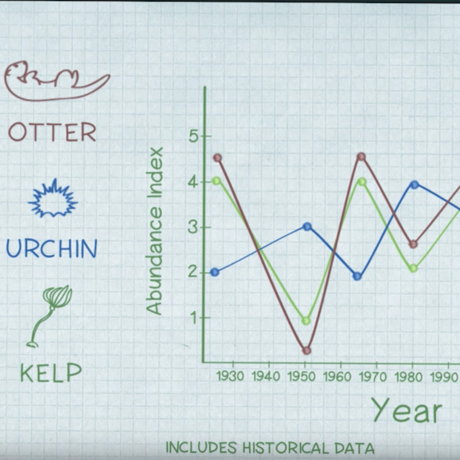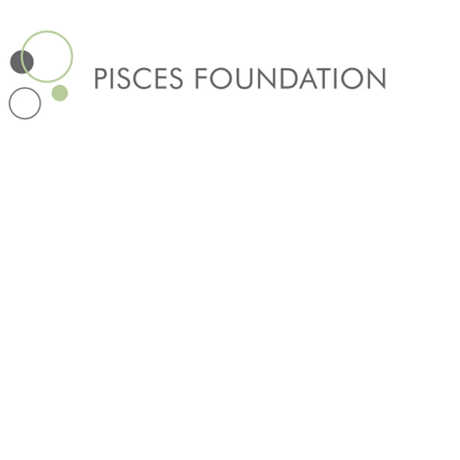Exploring Ecosystems
Each brief video features an interactive exercise based on Academy research!
How do changes in the ecosystem effect the community? Enter a kelp forest and explore the various threads that connect species together in food webs.

In addition to showcasing live footage from a unique ecosystem, each of the three videos in the Exploring Ecosystems series features an opportunity for students to actively participate in a problem-solving scenario based on an ongoing research project of an Academy scientist.
As you watch the video, be prepared to pause at key points to participate fully!
The Coastal Food Web video investigates the following questions:
Describe two concrete examples of community interactions, being sure to describe the relationships between species.
There are many different ways the removal of sea otters could impact species in the food web featured in the video. The example shown is meant to represent just one of those potential trophic cascade scenarios.
When discussing with your students, encourage them to think about the complexity of food webs, which are formed and impacted by a multitude of abiotic and biotic factors. As such, each time the system is disturbed, a different result may occur. That's not to say scientists can't make conclusions based on data, such as the classic example presented in this video: when a top predator like the sea otter is removed we know that sea urchin populations explode and their predation reduces kelp populations.
If you'd like to know more about the example shown in the video, check out this scientific paper by Steneck et al., which Academy educators used as a reference for the content in the video.
AP Biology
Next Generation Science Standards
Kelp Forest Ecosystems: Biodiversity, Stability, Resilience and Future
This research article formed the basis for the trophic cascade featured in the video!
Food Webs Before the Impact
In this Science News article, explore what killed the dinosaurs 65 million years ago. Could it have been the health of ecosystems from 13 million to 2 million years prior to the impact?
Healthy Ecosystems Limit Disease in Humans and Wildlife
Ecosystem services in the form of food, water, shelter, and even medicines are key to our lives, but furthermore, studies have determined that diseases emerge from damaged environments. In this article learn how our human health depends on a healthy environment.
Each brief video features an interactive exercise based on Academy research!
Environmental Literacy Initiative, major funding provided by
